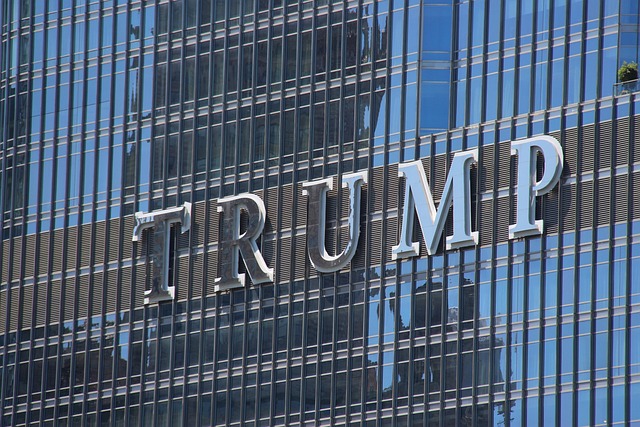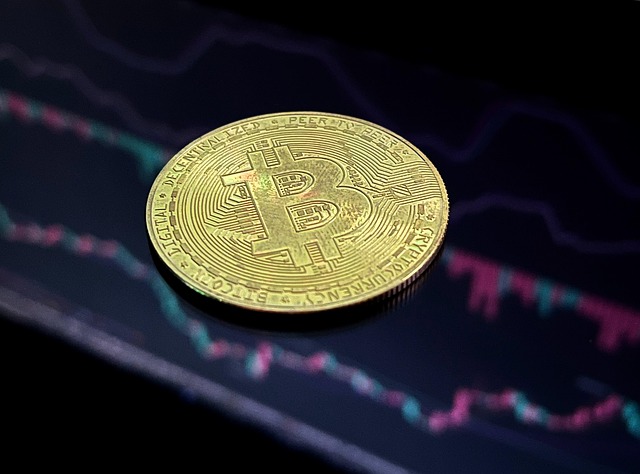Trump Media execs seek $179M via new SPAC to possibly buy crypto firm
Three Trump Media & Technology Group executives are heading up a company that could look to buy a US-based crypto or blockchain firm, citing the Trump administration’s backing of the sector.The trio is targeting a $179 million public and private offering through the Cayman Islands-based special-purpose acquisition company (SPAC), Renatus Tactical Acquisition Corp I, according to a March 14 regulatory filing first reported by Forbes.Renatus Tactical’s CEO, Eric Swider, is a director at Trump Media and was the CEO at Digital World Acquisition Corp., a SPAC that merged with the firm, allowing it to go public. Renatus Tactical’s operating chief, Alexander Cano, was Digital World’s president, while Trump Media CEO and chair Devin Nunes also chairs Renatus Tactical.Renatus Tactical wasn’t specific about what it was looking to buy. It said it could acquire “one or more businesses” and is also looking to invest in data security and technology used for both military and non-military applications.It said it could pursue a business in any of the industries anywhere in the world but intends to focus its search “on high-potential businesses based in the United States.”Renatus Tactical aims to raise over $178.94 million through 17.5 million public shares at $10 each and over 3.94 million private placement warrants at $1 each. Source: SECIn the filing, Renatus Tactical said US President Donald Trump’s administration “has taken unprecedented steps to integrate digital assets into the national financial strategy,” citing Trump’s early March executive order to create both a Bitcoin (BTC) reserve and a crypto stockpile and his January order tasking a working group to propose crypto laws.Related: Kraken nears $1.5B deal allowing it to offer US crypto futures: Report However, the company said that its Trump ties could be a problem, as some “may not want to engage with us to provide services due to the affiliation of our management team and our board of directors” with Trump and Trump Media.That’s been an issue for car maker Tesla, which has seen its share price tank over 40% this year due in part to its CEO Elon Musk taking up a role as White House cost-cutting czar, which has sparked attacks that have burned Tesla cars and vandalized dealerships across the US.Trump has a majority stake in Trump Media which runs the social media platform Truth Social. Forbes estimates that Trump is worth about $4.8 billion, while Bloomberg has put his wealth at over $6.5 billion, but both said his 114.75 million shares in Trump Media account for the bulk of his wealth, worth $2.36 billion at the company’s current closing price of $20.59.Trump put the shares into a trust in December in an effort to dampen a conflict of interest ahead of his inauguration.Magazine: Trump’s crypto ventures raise conflict of interest, insider trading questions
Leveraged bets on FOMC meeting ‘guaranteed recipe to lose money’ — Trader
A crypto trader warns that going heavy on leverage before the monthly United States interest rate decision is a surefire way to lose money in crypto trading. After the Federal Reserve’s statement confirmed the US central bank intends to leave interest rates unchanged in its target range between 4.25% to 4.5%, Bitcoin’s price barely moved, as the market had already widely expected no change in the interest rate. However, after Fed chair Jerome Powell said the probability of a recession is “not high,” despite independent economists raising the odds of one, the overall crypto market saw an upswing, leaving traders betting on the downside caught off guard. “A guaranteed recipe to lose money,” MN Trading Capital founder Michael van de Poppe said in a March 19 X post. CoinGlass data, which tracks a 12-hour window, shows $188.77 million was liquidated from the crypto market, with $127.80 million of that being short positions.Approximately $257.03 million in short positions have been liquidated over the past 24 hours. Source: CoinGlassBitcoin (BTC) surged 3.84% in six hours after Powell’s speech to hit $87,427 before pulling back to $85,760 by publication. Ether (ETH) climbed 2.27% in the same period, while XRP (XRP) gained 2.40%, adding to its 7.50% rally leading into the interest rate announcement, according to CoinMarketCap data.“The initial statement isn’t as important. The words from J. Powell are,” van de Poppe said, adding, “That’s what likely defines Bitcoin price action for the coming period.” Bitcoin is up 3.49% over the past 24 hours. Source: CoinMarketCapRelated: Bitcoin risks new ‘death cross’ as BTC price tackles $84K resistanceCrypto analyst says the Bitcoin rally will not continue in the near termCrypto trading account BitcoinHyper said, “FOMC meeting made Bitcoin pump directly into the big liquidation level.” “Even if BTC goes higher, this is not a good level to look for new long positions,” the trading account said.Matt Mena, crypto research strategist at 21Shares, made a similar forecast, saying that while the US Federal Reserve’s “dovish shift” on interest rates could give Bitcoin a short-term boost, it may not be sustainable.“Bitcoin is likely to remain in consolidation mode until a clear catalyst emerges,” Mena said. “Looking further ahead, the broader macro environment remains supportive of a bullish case for BTC,” Mena said in a statement viewed by Cointelegraph.According to Powell, the median forecast from FOMC members is that interest rates will be at 3.9% at the end of 2025 and 3.4% at the end of 2026.Magazine: Classic Sega, Atari and Nintendo games get crypto makeovers: Web3 GamerThis article does not contain investment advice or recommendations. Every investment and trading move involves risk, and readers should conduct their own research when making a decision.
US recession would be a big catalyst for Bitcoin: BlackRock
BlackRock’s head of digital assets, Robbie Mitchnick, says that Bitcoin will most likely thrive in a recessionary macro environment, contrary to what some analysts may think. “I don’t know if we’ll have a recession or not, but a recession would be a big catalyst for Bitcoin,” Mitchnick said in a March 19 interview with Yahoo Finance.Mitchnick said Bitcoin (BTC) is catalyzed by increased fiscal spending, deficit accumulation, lower interest rates and monetary stimulus — all of which tend to happen in recessions.“And it’s catalyzed to some extent over fears of general social disorder,” Mitchnick pointed out. “And that too, unfortunately, is something that can happen in a recession.”🚨 LATEST: BlackRock Global Head of Digital Assets Robbie Mitchnick says, “If you look at Bitcoin fundamentally on a long-term basis, it really seems like an asset that should be uncorrelated or even inversely correlated against certain risk factors that exist.” pic.twitter.com/bC0zKqF3xB— Cointelegraph (@Cointelegraph) March 19, 2025The BlackRock executive said the market is “not particularly well calibrated” to Bitcoin, and many still view it as a risk-on asset.Risk-on assets, such as stocks, commodities and high-yield bonds, tend to suffer during times of economic crises, but Mitchnick said in September that he believed the asset was mislabeled. “But that’s where the opportunity comes in for education in a market and asset class that’s still very nascent.”Mitchnick said BlackRock has been helping some of its clients see through some of these conflicting narratives.He added that some of BlackRock’s more “sophisticated long-term Bitcoin accumulator” clients see the market correction as a buying opportunity and aren’t bothered by the current economic headwinds.Meanwhile, researchers from cryptocurrency exchange Coinbase were less bullish, saying crypto’s positive outlook for the first quarter had “clearly been misplaced” by recession fears and the recent tariffs imposed.“Fears of a dramatic US economic slowdown or even recession have caused sentiment to turn sharply,” Coinbase Institutional said in its monthly outlook report on March 17.Related: Crypto market’s biggest risks in 2025: US recession, circular crypto economyBlackRock has played a key role in the institutional and wealth advisory adoption of Bitcoin through its iShares Bitcoin Trust ETF — which holds the most net assets of any Bitcoin investment product at $48.7 billion.Mitchnick isn’t worried about the mass net outflows across most spot Bitcoin exchange-traded funds of late — pointing out that it has mostly come from hedge funds’ unwinding of the spot futures arbitrage trade, not the long-term buy-and-hold investors.Bitcoin is currently trading at $86,000, up 3.8% over the last 24 hours.Magazine: Meet lawyer Max Burwick — ‘The ambulance chaser of crypto’
Bitnomial drops SEC lawsuit ahead of XRP futures launch in the US
Crypto exchange Bitnomial has voluntarily dismissed its lawsuit against the US Securities and Exchange Commission ahead of launching its Ripple XRP futures in the United States.The Chicago-based firm said in a March 19 statement to X that its XRP (XRP) futures are regulated by the US Commodity Futures Trading Commission and will be available from March 20 for current users.“Bitnomial is launching the first-ever CFTC-regulated XRP futures in the US — physically settled for real market impact,” Bitnomial said.“Plus, we’ve voluntarily dismissed our case against the SEC as regulatory clarity improves,” it added.Source: Bitnomial The exchange filed a self-certification with the CFTC to list XRP futures contracts on its exchange in August 2024. However, the SEC blocked the move, pushing for Bitnomial to register as a securities exchange before it could list the futures.Bitnomial sued the SEC and its five commissioners on Oct. 10, accusing the agency of overextending its jurisdiction by claiming that XRP is a security.Bitnomial’s XRP futures launch follows Ripple CEO Brad Garlinghouse’s March 19 announcement the SEC opted out of continuing an appeal against a ruling labeling XRP as not a security for retail sales.A July 13, 2023 judgment from Judge Analisa Torres deemed XRP is not a security for retail sales; however, she opined it was when sold to institutional investors, as it met the conditions set in the Howey test. The SEC was appealing Torres’s decision.The SEC initially launched legal action against Ripple Labs in December 2020, accusing the firm of illegally selling its token as an unregistered security.Related: Vermont follows SEC’s lead, drops staking legal action against CoinbaseUnder the Trump administration, the SEC has slowly been walking back its hardline stance toward crypto forged under former SEC Chair Gary Gensler’s reign, dismissing a growing number of enforcement actions against crypto firms.The agency’s acting chair, Mark Uyeda, who took the reins after Gensler resigned on Jan. 20, flagged plans on March 17 to scrap a rule proposed under the Biden administration that would tighten crypto custody standards for investment advisers.Uyeda also said in a March 10 speech that he had asked SEC staff for options to abandon part of proposed changes that would expand regulation of alternative trading systems to include crypto firms, requiring them to register as exchanges. Magazine: SEC’s U-turn on crypto leaves key questions unanswered
Kraken nears $1.5B deal allowing it to offer US crypto futures: Report
Crypto exchange Kraken is reportedly closing in on a $1.5 billion acquisition of trading platform NinjaTrader, a move that would expand Kraken’s customer base and enable it to offer crypto futures and derivatives in the US.The deal could be confirmed by the morning of March 20 in the US, The Wall Street Journal said in a March 19 report, citing people familiar with the matter.Kraken’s expanded offerings would be made possible through NinjaTrader’s registration as a Futures Commission Merchant. The move would help Kraken’s strategy to work across several asset classes — including plans for equities trading and payments — while enabling NinjaTrader to expand into the UK, continental Europe and Australian markets, the sources told WSJ.NinjaTrader is expected to remain a standalone platform under Kraken.Cointelegraph reached out to Kraken and NinjaTrader for comment but did not receive an immediate response. Source: Wall Street Journal MarketsKraken posted $1.5 billion in revenue and $665 billion in trading volume from 2.5 million funded customer accounts on its platform in 2024, while NinjaTrader recently said its futures trading tools are used by over 1.8 million customers.Kraken announced its intention to broaden its product offerings and services last November when it shuttered its non-fungible token marketplace.Related: Australia fines Kraken operator $5M for regulatory breachesIt comes as the US Securities and Exchange Commission dropped its lawsuit against Kraken on March 3 after it initially alleged that the crypto platform acted as an unregistered broker, dealer, exchange and clearing agency. The suit was dismissed with prejudice, with no admission of wrongdoing, no penalties paid and no changes to Kraken’s business. Kraken is one of many firms that stand to benefit from a more relaxed regulatory environment in the US under President Donald Trump, who has promised to make America the “crypto capital” of the world.The crypto exchange was founded in 2011 by Thanh Luu, Michael Gronager and former CEO Jesse Powell, who handed the reins over to former data analytics executive Amir Orad last July.Kraken consistently ranks among the top seven to 15 largest crypto exchanges by spot trading volume, handling between $390 million and $4.4 billion in daily trades over the past three months, according to CoinGecko data.Magazine: Deposit risk: What do crypto exchanges really do with your money?
Bakkt names new co-CEO amid re-focus on crypto offerings
Crypto custody and trading firm Bakkt Holdings has appointed a new co-CEO and is cutting some of its services to focus on its crypto offerings after recently losing two major clients.Akshay Naheta, the founder of stablecoin payments infrastructure firm Distributed Technologies Research (DTR), will join Bakkt CEO Andy Main in the role, the company said on March 19.Bakkt added that it will enter into an agreement with DTR to integrate its stablecoin-based payment infrastructure with Bakkt’s crypto trading and brokerage technology, subject to regulatory approval.Bakkt said the partnership would open new revenue streams in stablecoin payments and crypto trading while increasing efficiency in cross-border payments, a popular use case for crypto.Naheta founded DTR in 2022 after a nearly six-year stint in various executive roles at investment management giant SoftBank Group, which has a history of investing in crypto firms.In a separate statement reporting its fourth quarter and full year 2024 results, Bakkt said it wants “to focus resources on core crypto offerings” and was potentially looking to sell or wind down its loyalty services business, which allows its clients to offer travel and merchandise perks.Bakkt recently shared its take on stablecoins ahead of it, sharing it had partnered with DTR. Source: BakktBakkt added that it was selling its crypto custody subsidiary, Bakkt Trust, to its parent company, Intercontinental Exchange, for $1.5 million. It said the sale would cut operating costs by $3.8 million a year and free up around $3 million for investment into its crypto business.The firm added it would maintain custody solutions “through a robust network of reputable custody providers.”Its moves come after Bakkt disclosed on March 17 that its major clients, Bank of America and trading platform Webull, won’t be renewing contacts with the firm when they expire in April and June, respectively.Bank of America accounted for around 16% of Bakkt’s loyalty services revenue in 2023 and 2024, while Webull represented 74% of its crypto revenues over that same period.The disclosure sent its share price tumbling on March 18, which closed the trading day down over 27% to $9.33.Bakkt improves top and bottom-line earnings Bakkt reported on March 19 that its total 2024 revenues came in at $3.49 billion, up nearly 350% year-over-year, while its yearly net loss roughly halved to $103.4 million.Related: Fund managers dump US stocks at record pace — Can recession fears hurt Bitcoin? Fourth quarter revenues increased more than seven-fold from 2024, reaching $1.8 billion, while its net loss narrowed to $40.4 million. It forecast revenues of between $1.03 billion to $1.28 billion for the first quarter of 2025, which would be a nearly 50% bump from the first quarter of 2024.Shares in Bakkt (BKKT) closed flat at $9.31 on March 19 after a dip to $8.50 during trading; it reached a top of $9.88 after the bell but has since settled to around its closing price, according to Google Finance.Bakkt shares closed mostly flat on March 19 and settled after the bell. Source: Google FinanceBakkt is down nearly 62.5% so far this year and has essentially lost all value since peaking at over $1,000 in October 2021.Opinion: Coinbase and Base: Is crypto just becoming traditional finance 2.0?
Sanctioned crypto exchange Garantex shifts millions as it reboots platform
Shuttered crypto exchange Garantex is reportedly back under a new name after laundering millions in ruble-backed stablecoins and sending them to a freshly created exchange, according to a Swiss blockchain analytics company. Global Ledger claims the operators of the Russian exchange have shifted liquidity and customer deposits to Grinex, which they say is “Garantex’s full-fledged successor,” in a report released to X on March 19.“We can confidently state that Grinex and Garantex are directly connected both onchain and offchain.”“The movement of funds, including the systematic transfer of A7A5 liquidity, the use of one-time-use wallets, and the involvement of addresses previously associated with Garantex, provides clear onchain proof of their link,” the Global Ledger team said in the report.After completing its investigation on March 13, Global Ledger says it had found onchain data showing Garantex laundered over $60 million worth of ruble-backed stablecoins called A7A5 and sent them to addresses associated with Grinex.Global Ledger claims Garantex has moved all its funds over to a newly launched exchange and is back in business. Source: Global Ledger“In this case, the burning and subsequent minting process was used to launder funds from Garantex, allowing new coins to be minted from a system address with a clean history,” the team said.A Garantex manager also reportedly told Global Ledger that customers have been visiting the exchange office in person and moving funds from Garantex to Grinex.“Additionally, offchain indicators, such as transactional patterns, commentaries and exchange behaviors, further reinforce this connection,” it said.The report also points to a description of Grinex on the Russian crypto tracking site CoinMarketRating, claiming that the owners of Garantex created it. The reports said this shows “Grinex is not an independent entity but rather a full-fledged successor to Garantex, continuing its financial operations despite the exchange’s official shutdown.”Source: Global LedgerBy March 14, the volume of incoming transactions on Grinex was nearly $30 million, according to Global Ledger. CoinMarketRating shows that the trade volume for the month is now over $68 million, with spot trading topping $2 million.The US Department of the Treasury’s Office of Foreign Assets Control first hit Garantex with sanctions in April 2022 for allegedly money laundering violations.Related: US, UK, Australia sanction Zservers for hosting crypto ransomware LockBitOn March 6, the US Department of Justice collaborated with authorities in Germany and Finland to freeze domains associated with Garantex, which they claim processed over $96 billion worth of criminal proceeds since launching in 2019.Stablecoin operator Tether also froze $27 million in Tether (USDT), on March 6 which forced Garantex to halt all operations, including withdrawals.Only a few days later, on March 12, officials with India’s Central Bureau of Investigation arrested Aleksej Bešciokov, who allegedly operated Garantex, on US charges that included conspiracy to commit money laundering. Magazine: How crypto laws are changing across the world in 2025
‘I am ashamed’ — Solana CEO breaks silence over controversial ad backlash
Solana Labs CEO Anatoly Yakovenko has broken his silence over the “America Is Back — Time to Accelerate” advertisement, which blended American patriotism and tech innovation with political messaging around gender identity.“The ad was bad, and it’s still gnawing at my soul,” Yakovenko said in a March 19 X post after receiving immense backlash over the controversial ad. “I am ashamed I downplayed it instead of just calling it what it is – mean and punching down on a marginalized group.”Yakovenko praised those in the Solana ecosystem who called out the “mess” that was posted on Solana’s X account, which accumulated around 1.2 million views and 1,300 comments before it was deleted roughly nine hours later.Yakovenko said he will use the learning experience to ensure Solana stays focused on open-source software development and decentralization while staying “out of cultural wars.”Source: Anatoly YakovenkoSolana hasn’t made an official comment on the matter, though its X account reshared Yakovenko’s post to its 3.3 million followers.Cointelegraph also reached out to the Solana Foundation shortly after the ad was taken down but didn’t receive a response.The two-and-a-half-minute ad for the Solana Accelerate conference showcased a man acting as America in a therapy session who said he was having thoughts “about innovation” such as crypto.The therapist responded that he should instead do “something more productive, like coming up with a new gender” and later said the man should “focus on pronouns.”The man snapped back, stating that he wanted “to invent technologies, not genders.”Took them 9 hours to delete it.Also all the major players in the Solana ecosystem suddenly delete their tweets promoting/supporting the ad and RT’d and liked takes about it being bad.They approved this, supported it and celebrated it.They rolled it back because it hurt… pic.twitter.com/kPMERDpTcn— Adam Cochran (adamscochran.eth) (@adamscochran) March 18, 2025The now-deleted ad came nine days after Solana’s X account posted: “Solana is for everyone.”Related: Solana rallies 8% as crypto markets recover — Is there room for more SOL upside?Cinneamhain Ventures partner Adam Cochran pointed out that transgender people contribute to open-source software and cryptography in an “insanely disproportionate amount.”A GitHub survey from 2017 found that of the 5,500 randomly selected open-source developers, 1% were transgender, and another 1% were non-binary.Most data obtained during 2017 and 2018 suggest that transgender and non-binary people combined represented somewhere between 0.1% and 0.6% of the population.Magazine: Memecoins are ded — But Solana ‘100x better’ despite revenue plunge








